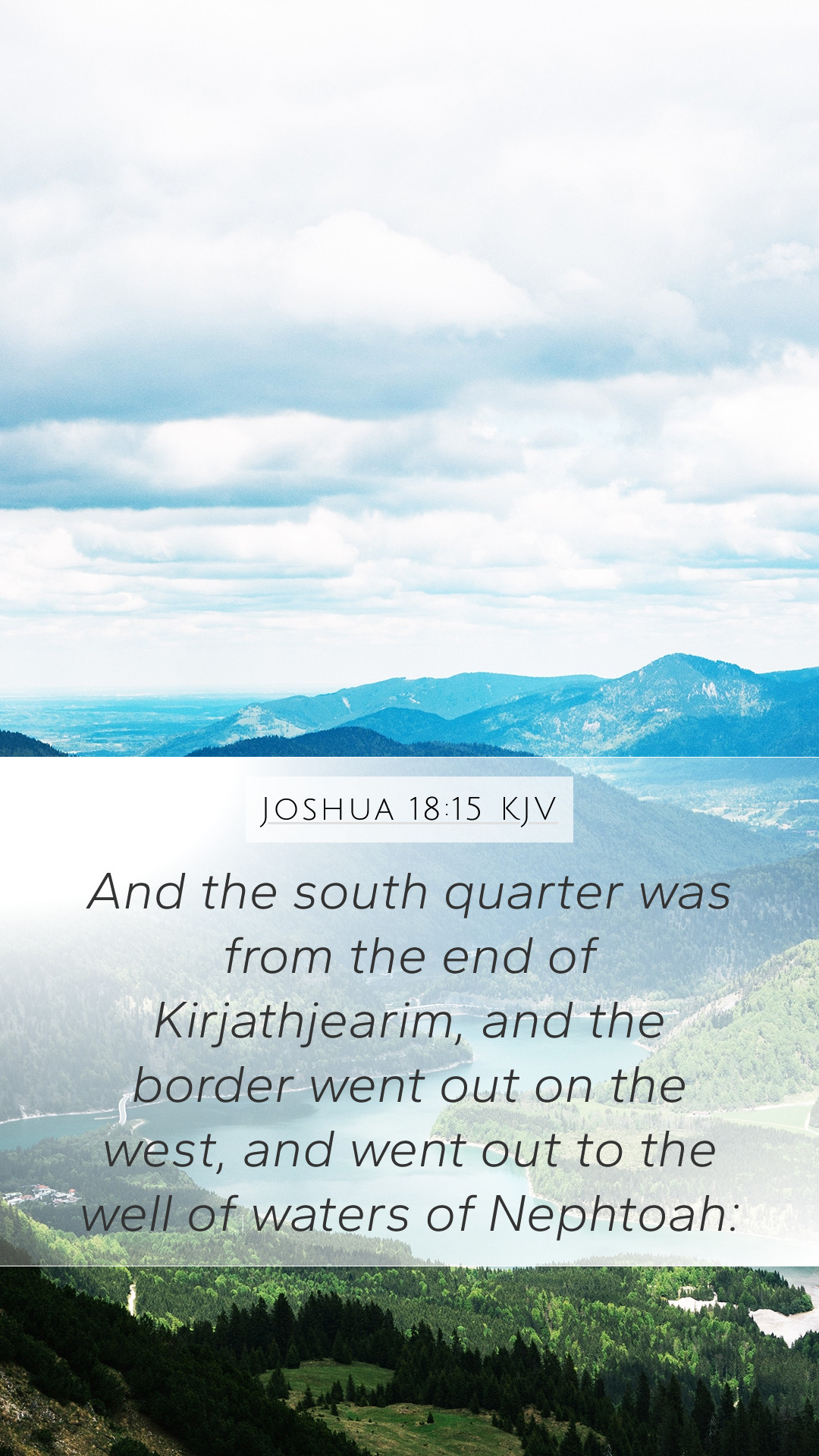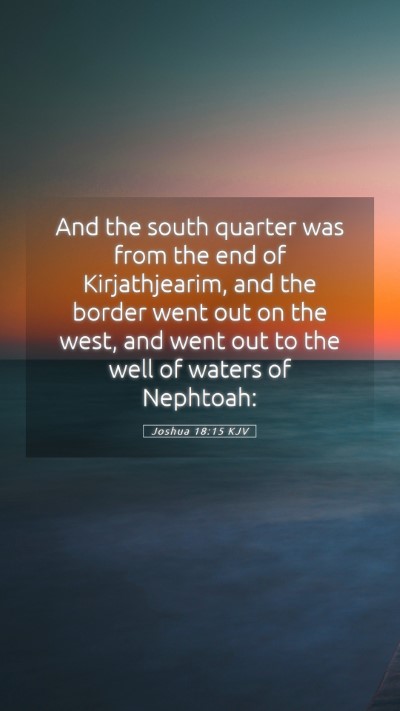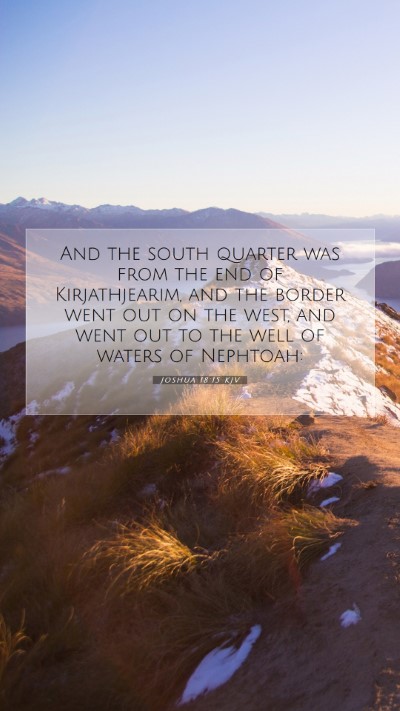Understanding Joshua 18:15
Joshua 18:15 states: "And the south quarter was from the end of Kirjathjearim, and the border went out on the west, and the south quarter was from the end of Kirjathjearim, and the border went out on the west, and the south quarter was from the end of Kirjathjearim, and the border went out on the west."
Overview of the Verse
This verse provides a specific geographical description that is crucial for understanding the allotment of land among the tribes of Israel. The detailed mention of borders highlights the significance of land distribution in the context of Israel’s history.
Bible Verse Meanings and Interpretations
To explore the meanings and interpretations of Joshua 18:15, we can draw insights from several public domain commentaries:
-
Matthew Henry's Commentary:
Matthew Henry emphasizes the establishment of boundaries as a sign of order and divine providence. He notes that the precise description of land serves to remind the Israelites of God's promise to them. This organization reflects the importance of having clear delineations in our lives, as it allows for stability and clarity.
-
Albert Barnes' Notes:
Barnes points out that this verse underscores the fulfillment of God's promises regarding the land. The land is divided not randomly but according to God’s plan, affirming the belief that God’s guidance is evident in our earthly possessions and spiritual inheritance.
-
Adam Clarke's Commentary:
Clarke elaborates on the locations mentioned, providing historical and geographical context. He suggests that understanding these places can enrich one’s appreciation for the text and its relevance. Clarke also implies that it serves as a reminder of the connection between the Israelites and their heritage.
Significance of the Verse
Understanding Scripture often involves analyzing the context and significance of such passages:
- The south quarter refers to the southern boundary of a designated area, underscoring the meticulous attention given to the distribution of land.
- It represents a physical inheritance which parallels spiritual inheritance in Christian thought, suggesting that believers today also have boundaries and inheritances defined by faith.
- The verse can remind believers of God's providential care and His promises — that just as He provided for Israel, He also provides for His people today.
Application of Joshua 18:15
To apply the teachings from Joshua 18:15 in daily life, consider the following:
- Reflect on the importance of having defined boundaries in various aspects of life — personal, professional, and spiritual.
- Recognize God’s provision in your life, just as the Israelites recognized their inheritance.
- Use this verse as a reminder of the historical struggles and victories of God’s people, which can inspire one's own faith journey.
Cross References
This verse can be related to several other Bible passages:
- Deuteronomy 1:38 - Discusses the leaders appointed to help allocate land.
- Joshua 13:1-7 - Explains the territories yet to be conquered.
- Ezra 2:1-70 - The return of the exiles and the importance of their heritage.
Conclusion
Joshua 18:15 serves as more than a mere geographical note; it encapsulates themes of divine provision, heritage, and the necessity of boundaries in God’s creation. Through diligent study and analysis, we can glean profound insights that apply to our lives today.
For Further Study
Utilize the following Bible study resources for a deeper exploration:
- Bible study guides that focus on the historical context of biblical allotments.
- Online Bible study forums for community discussion and interpretations.
- Bible study lessons that correlate Old Testament land distributions with New Testament principles of inheritance and promise.


